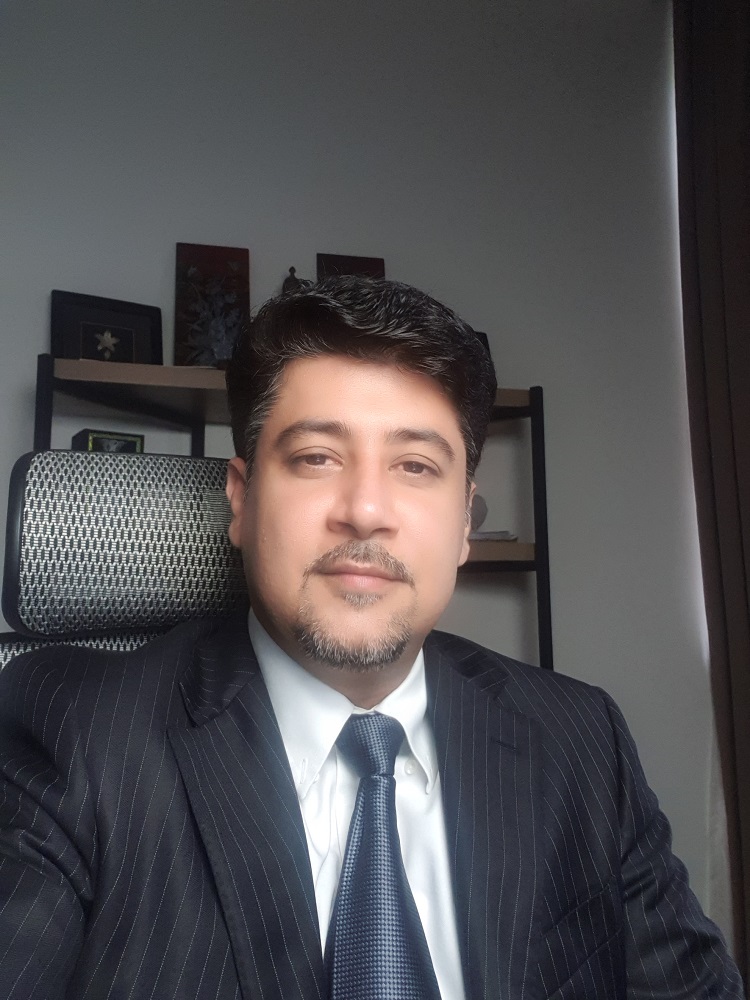




From left: Dr Low, Dr Chang, Kalai Vani and Dr Falahat
Four
UTAR academics successfully
secured the Masa Policy Development Programme (MPDP) Research Grant out of
the 134 research proposals submitted by researchers and academicians from 21
local and private universities and institutions in seven focus areas of
strategies as outlined under the on-going National Recovery Plan (NRP).
Each successful policy research
proposal was awarded up to RM10,000. In addition to being awarded a research
grant, the successful applicants also had the opportunities to publish their
research reports as policy documents to be disseminated to national and
international agencies handling public policy.
MPDP was introduced with the aim to
enable researchers and academicians to provide competitive decisions and
policy inputs to assist in the implementation of the on-going national
recovery process and governmental strategies and plans post-Covid-19.
Faculty of Accountancy and Management
(FAM) academic Dr Low Mei Peng’s research titled Assessing Organisational
Resources for Post Pandemic Resiliency and Employees’ Well-Being aimed to
assess the level of organisational resources specifically the economic
capital, social capital, human capital and physical capital. The research
also sought to understand the organisational response toward the Covid-19
pandemic in terms of current practices and future plans while exploring the
level of organisational resources together with their immediate remedy and
going-forward plan. Dr Low shared, “The findings will serve as an input to
propose practical recommendations to business organisations on the resources
to be emphasised for organisational resilience; and to policymakers for the
supports required to assist business organisations for prompt recovery and
crisis preparedness. Organisational Resilience is the ability of an
organisation to anticipate, prepare for, respond and adapt to incremental
change and sudden disruptions in order to survive and prosper.”
FAM academic Dr Mohammad Falahat
Nejadmahani’s research titled Big Data Analytics (BDA) Capability Model for
SMEs: Post COVID-19, aim to explored and identify the drivers of big data
analytics capability that leads to SMEs sustainability and superior
performance. The outcome of this project is to develop a big data analytics
capability model that explains how SMEs can add value and support the
decision-making process in a volatile environment such as COVID-19. He said,
“It is indeed very exciting to receive such a prestigious research policy
grant from MASA. Being part of MASA’s policy development programme enables
us to propose a policy that can be acknowledged and implemented by
Malaysia’s policymakers. Our proposed policy directly impacts Malaysia’s
economy as a whole by addressing Malaysia’s Shared Prosperity Vision 2030.
This research will contribute to the industries that are still in the low
value-added category with low adoption of high technology. Also, it will
ultimately lead to the realisation of SMEs as the ‘game changers’ to
transition the economy to a high-income nation. Our proposed model could
help SMEs boost their performance in value creation, directly influencing
the country’s GDP and employability. I would like to thank the team members
who are joining me in this project; Assoc Prof Dr Cheah Phaik Kin from UTAR
Centre for Learning and Teaching, Dr Sia Bik Kai, Dr Corrinne Lee Mei Jyin
and Jayamalathi Jayabalan from the Centre for Entrepreneurial Sustainability
(CENTS).”
Faculty of Information and
Communication Technology (FICT) academic Dr Chang Jing Jing’s research
titled Increasing medical specialists in Malaysia: Beware of vicious cycle
aimed to identify the leverage points in order to achieve a sustainable
supply of medical specialists. “Shortage of medical specialists has long
been an issue in Malaysia,” Dr Chang mentioned, “In recent years, the
Ministry of Health (MOH) has taken multiple initiatives to increase the
number of medical specialists such as by expanding the medical graduate’s
specialisation pathway. However, it is equally important to study the
problems faced when increasing the number of medical specialist such as
specialist training and our overloaded public healthcare system. It is hoped
that the project can help to recommend policy that encourage a more
sustainable supply of medical specialists.” Dr Chang would also like to
thank Ms Seow Ai Na, Dr Syafiie and Dr Nani Draman for joining the team.
Faculty of Business and Finance
academic Kalai Vani Kalimuthu’s research titled Role of People with
Disabilities (PWDs) towards the Sustainability of the Tourism Sectors in
Malaysia focused on the main barriers faced by People with Disabilities
(PWDs) in terms of participation in tourism and addressed the best strategy
taken by travel agencies to ensure the accessibility of facilities for
tourists with disabilities and at the same time to study the lacking
existing policies to ensure the accessibility of facilities for tourists
with disabilities. “Travel and tourism have continued to grow at a fast pace
throughout time. Statistics indicate that tourism and travel contribute
significantly to the economy of the nation. However, many individuals lost
their employment due to the covid-19 pandemic, and the tourist industry has
suffered greatly. Since October 2021, tourism spots have begun to reopen in
Malaysia. Various policies aiming at revitalising the tourist industry are
being suggested. To better understand People with Disabilities (PWDs),
further study like this is required. Because the motives for their trip may
be distinct from those of other visitors, it is essential to look into them.
The travel choices made by PWDs are influenced by a desire for leisure,
self-discovery, and accessibility. Beyond these intrinsic motivations, this
study will discover a connection between travel agents and travel decisions
made by PWDs, who benefited from the availability of accessible travel
options and vice versa. Importantly, this study is expected to discover that
travel agents connected the leisure travel of PWDs instead to other people’s
journeys. The related government policy should encourage providing
accessible facilities for disability tourism. It is a new opportunity to
increase the number of tourists besides recovering tourism sectors after the
Covid-19 pandemic,” she shared.
Institut Masa Depan Malaysia (MASA) is an independent think tank that brings together experts in government and academia to provide quality research, policy recommendations and analysis on a full range of public policy issues, guided by the shared prosperity values.
Wholly owned by UTAR Education Foundation (200201010564(578227-M)) LEGAL STATEMENT TERM OF USAGE PRIVACY NOTICE